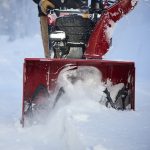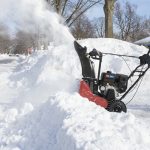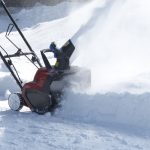Your garden is only as good as the soil it is planted in. There are six common problems one of which you may have encountered that are preventing your garden from becoming the best it can be. Here is how you can identify those problems and what you can do to fix them.
Dry Soil
If your garden’s soil appears too dry and the beds drain and dry out too quickly, then you need to do something to improve water retention and add more nutrients. One action that has proven to remedy this issue very well is compost. Experts say that spreading a 3-inch to 6-inch layer of compost organic material will fix the problem. However, be sure to use compost that has fully decomposed. If the material is not totally decomposed, then you may be robbing your garden of important nutrients while the compost is breaking down.
You should also lay down mulch as a way to reduce water evaporation from the soil. When the growing season ends, it is advised that you turn the mulch into the soil.
Wet Soil
If you find that the soil of your garden is too wet, then you need to do something that will add space between the soil particles to provide better drainage. Making sand or gravel a part of the soil will do the trick. You should also include organic materials to improve the nutrients. Don’t add sand to clay soil because the combination can become concrete.
If you are dealing with clay soil, add 1-cubic yard of gravel or compost per 100 square feet of garden.
Amendment rate for non-clay soils vary depending on the type of soil and the fix you choose to use. You may want to consult with your local university’s cooperative extension department.
Also be sure to build raised beds to assure that crop areas will drain faster. Make sure to plant in areas away from natural water routes. Don’t work the soil when it’s wet, especially if it includes dense clay, because it will contribute to soil-compaction issues.
Alkaline Soil
If you are dealing with clay soil and an arid or semi-arid climate, then you might experience too much alkaline in the soil. If a soil test shows high levels of pH, then you need to do something that will balance things out. Application of elemental sulfur and iron sulfate should work depending on the type of soil you have. Consult with the agency that tests your soil.
Experts suggest that you apply more than 7 pounds per square feet of iron sulfate. Keep in mind that elemental sulfur responds slowly with the soil, so apply it a year before planting and space the activity one to two months apart.
You need to monitor alkaline soils. So test the soil’s pH every one to two years and apply the fix as needed. If you are dealing with continuous alkaline in the soil, then it is suggested that you grow plants that can tolerate a high level of pH.
Acidic Soil
If you discover that your soil has low levels of pH, then the best remedy to consider using is lime. Soil conditions of this kind commonly occur in regions of high rainfall, poor drainage, heavy nitrogen-fertilizer use and a large population of evergreen trees.
The lime can be watered into the soil by rainfall or irrigation. How much lime to use varies and is based on the type of soil you are dealing with and the pH level. So it is suggested that you consult with the agency that performs your soil test.
Keep in mind that over application can cause a reduction of the availability of nutrients. So if you use more than 25 pounds of lime per 1,000 square feet, wait three to four weeks between applications. If you use less than 25 pounds of lime, then you can introduce it in a single application.
Experts also suggest that no more than 2-pounds per 100 square feet of wood ash should be applied. Keep in mind that if too much wood ash will increase the potassium level in the soil and prevent plants from absorbing other nutrients.







